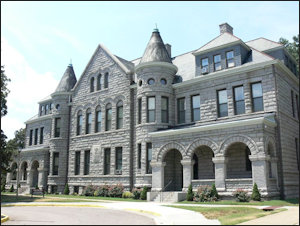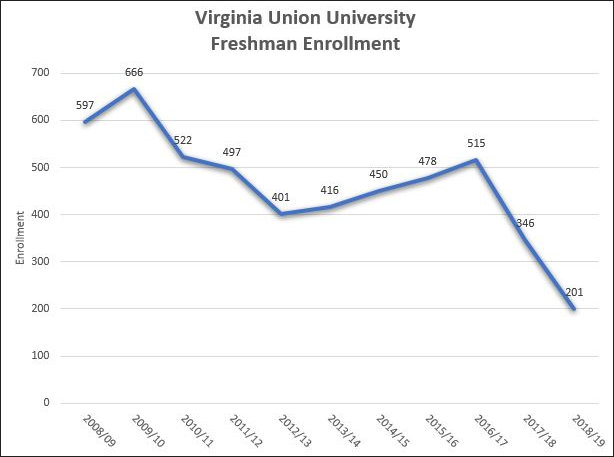Wow! Virginia Union University, a private, historically black university in Richmond, has announced that it will slash undergraduate tuition from $15,530 to $10,530 (not including the $1,753 in fees) — or 32% — in the fall of 2020. Room and board can add another $10,000 to the cost of attendance, depending upon the option chosen.
“We realize how crippling student loan debt has become for students nation-wide,” said Dr. Hakim Lucas, President & CEO of Virginia Union University. “Students enroll in college seeking a career path that will allow opportunity for long-term financial stability. However, they end up spending most of their working years paying back student loans. Virginia Union is doing what it can to ensure that students in the Commonwealth and across the nation have access to an education that will equip them with the tools they need to be successful, while avoiding the crippling bill waiting at the other end of graduation.”
While the cost of undergraduate tuition will go down, VUU will increase tuition for master’s or doctorate programs.
Bacon’s bottom line: A 32% tuition cut is a big deal. The first question that occurs: What drove the board of trustees to such an action? College boards rarely suffer crises of conscience over tuition hikes; they normally charge what the market will bear.
VUU is spinning the reduction as a positive response to students’ financial hardship. Somehow, financial hardship didn’t stop VUU (or any other university, public or private) from jacking up tuition in the past. Could the university be responding to adverse market conditions?
Well, from the look at VUU’s freshman admissions figures (courtesy of the State Council of Higher Education for Virginia database), it appears that the answer is yes.
In a period of declining college enrollments nationally, VUU suffers from a double drawback: It is an HBCU and it is a small liberal arts institution. As every higher-ed institution — large, small, public, private, elite, non-elite — tries to increase the enrollment of minorities, HBCUs are suffering more intense competition than ever. As a small liberal arts university, it falls into the category of higher-ed institutions experiencing the greatest loss of students (regardless of race).
The collapse in enrollment last year had to have been alarming to the board of trustees. The university accepted about half of all the kids who applied — 2,759 in all. But only small fractions decided to enroll (9.4% of in-state applicants and 5.4% of out-of-state applicants). The result: only 201 new freshmen, a third of the number in the 2009/10 academic year.
Another alarming development: 64% of the entering freshmen with SAT scores had scores below 800 (out of 1600). That compares to only 25% of students with SAT scores who scored so low two years previously.
Clearly, the board concluded that tuition was a significant barrier to enrolling new students. In the state of Virginia, it is competing against Norfolk State University and Virginia State University, both of which benefit from generous state support. A $5,000 tuition cut represents a big loss of revenue, but every student brings in not only tuition revenue but revenue from room and board. If VUU can boost its student enrollment back to the 400 to 500 range, the cuts should be revenue positive.
It goes without saying that the tuition cuts benefit the students. For the sake of VUU’s long-term viability, let’s hope the board’s gambit works.




